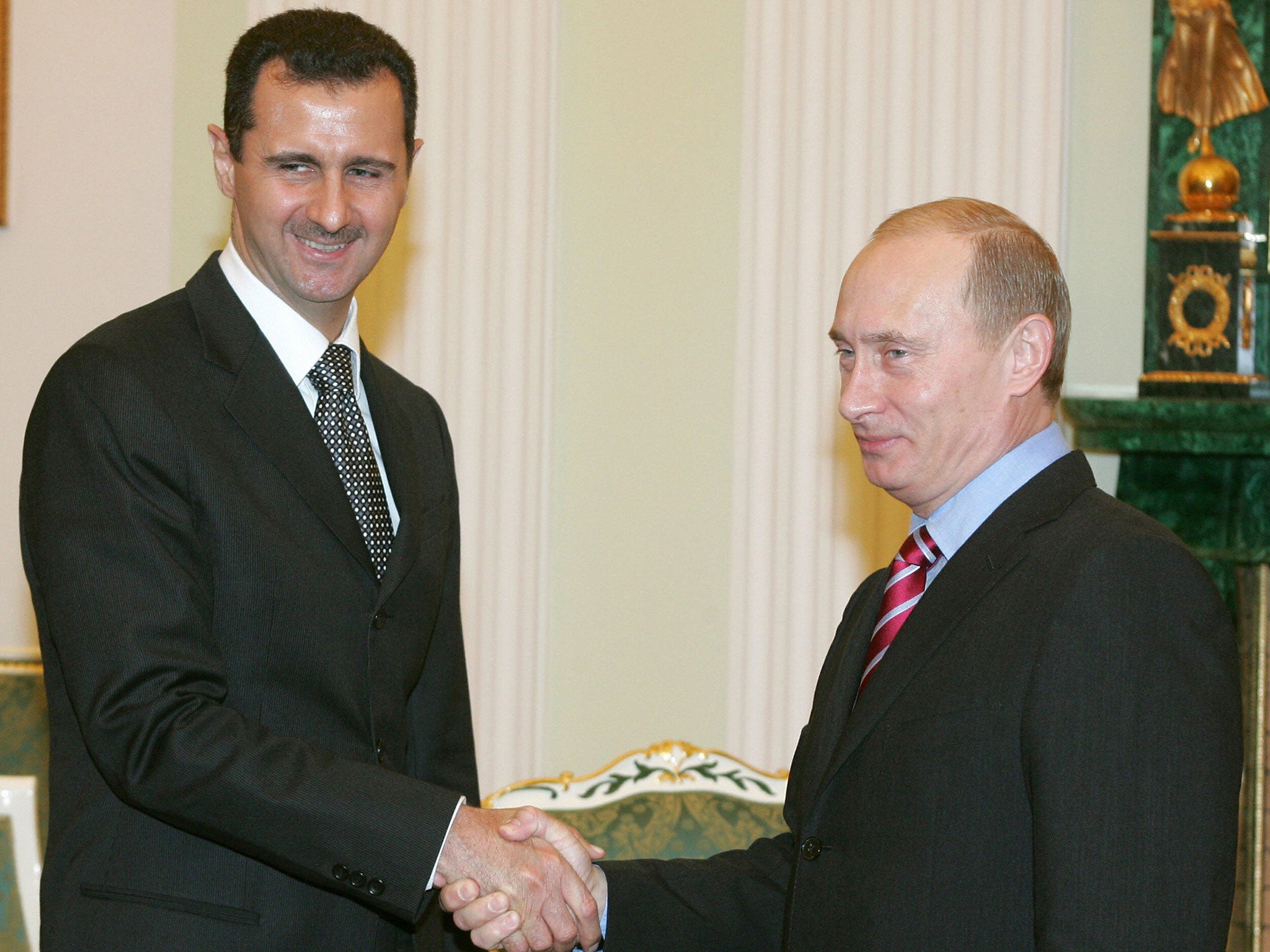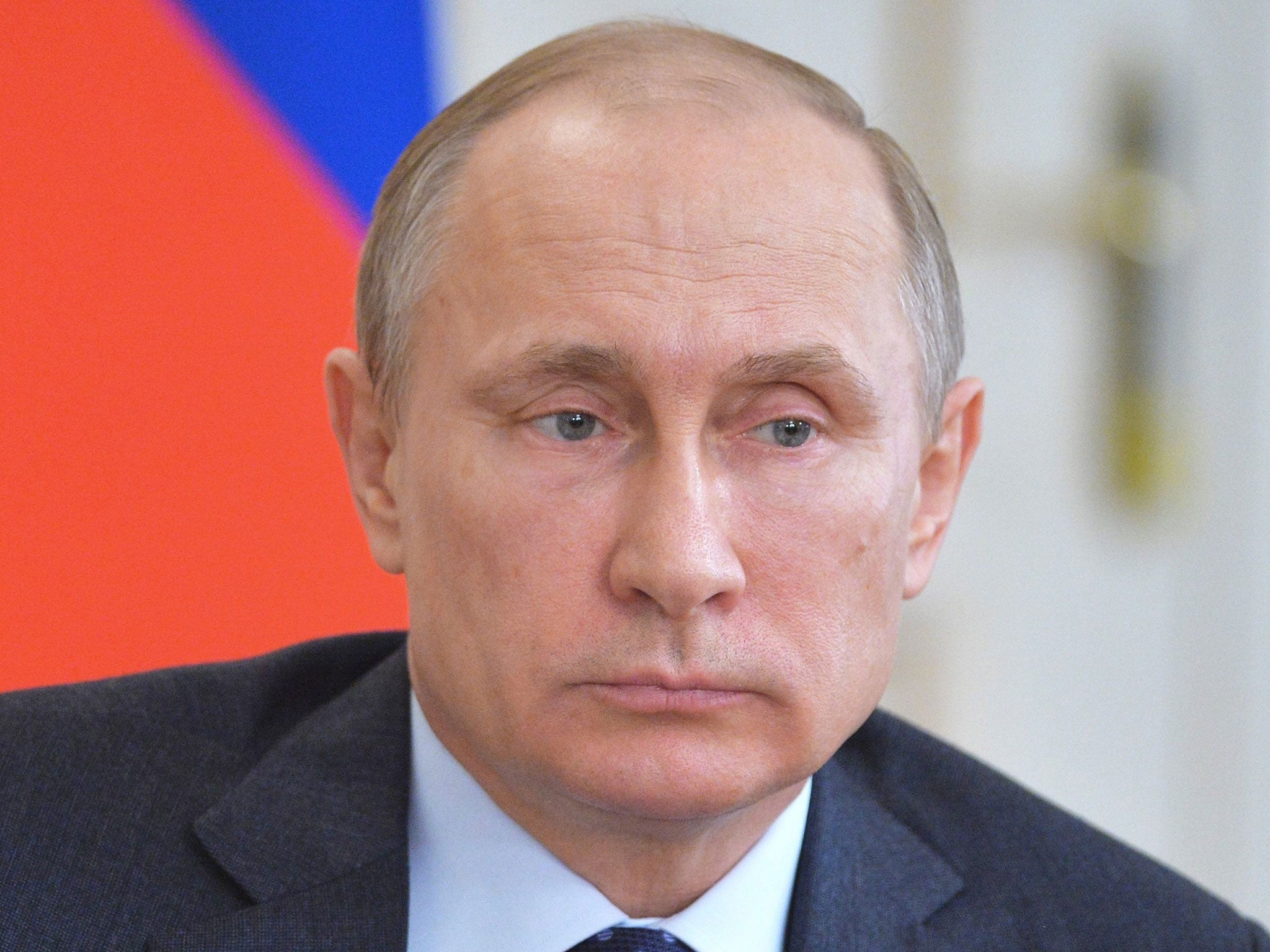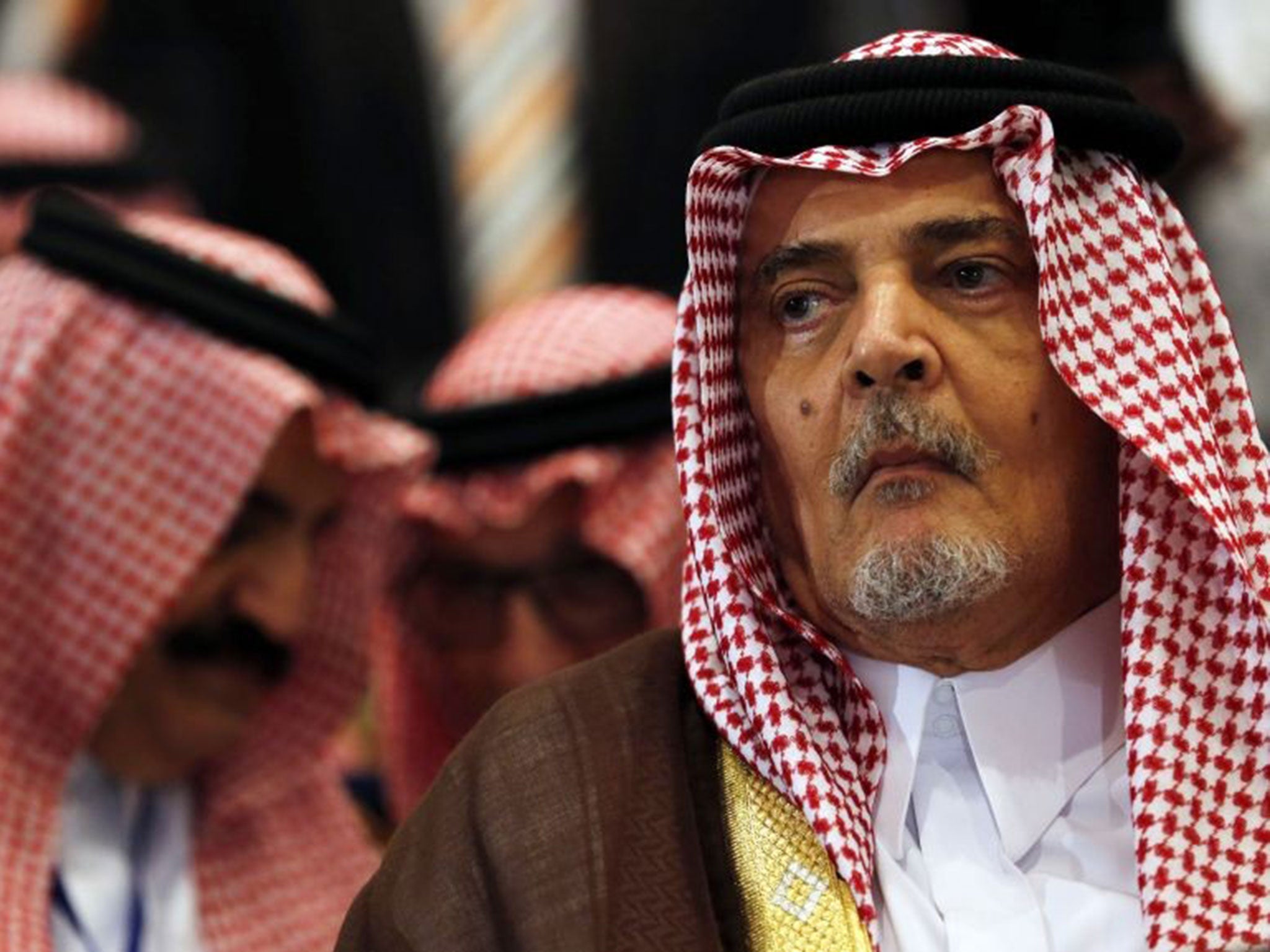Saudi Arabia accuses Putin of hypocrisy over letter urging peace when Russia 'part of problem'
'He speaks about the problems in the Middle East as though Russia is not influencing these problems,' the Saudi Foreign Minister said

Your support helps us to tell the story
From reproductive rights to climate change to Big Tech, The Independent is on the ground when the story is developing. Whether it's investigating the financials of Elon Musk's pro-Trump PAC or producing our latest documentary, 'The A Word', which shines a light on the American women fighting for reproductive rights, we know how important it is to parse out the facts from the messaging.
At such a critical moment in US history, we need reporters on the ground. Your donation allows us to keep sending journalists to speak to both sides of the story.
The Independent is trusted by Americans across the entire political spectrum. And unlike many other quality news outlets, we choose not to lock Americans out of our reporting and analysis with paywalls. We believe quality journalism should be available to everyone, paid for by those who can afford it.
Your support makes all the difference.Saudi Arabia has accused Vladimir Putin of hypocrisy after he sent a letter to the Arab League supporting the peaceful “resolution of all problems” it claims Russia is fuelling in the Middle East.
In a letter read out to delegates at the summit in Egypt on Sunday, the Russian President condemned extremist groups including Isis for undermining regional security, attacking civilians and destroying cultural heritage.
“We support the Arabs' aspirations for a prosperous future and for the resolution of all the problems the Arab world faces through peaceful means, without any external interference,” he wrote.

His comments came after Saudi-led air strikes pounded rebels in Yemen, reportedly destroying every one of their fighter jets in the country in bombing that killed dozens of people.
The Saudi Foreign Minister Prince, Saud al-Faisal, reprimanded Mr Putin for Russia’s continuing shipments of arms to the Syrian government.
It has supported President Bashar al-Assad’s forces with weapons including armoured vehicles, drones and guided bombs, throughout the country’s four-year civil war.
Mr Putin defended the flow of arms, which started long before Isis emerged as a separate group, in the wake of numerous allegations of war crimes by al-Assad’s forces.

“He speaks about the problems in the Middle East as though Russia is not influencing these problems,” Mr al-Faisal told the Arab League after the letter was read out.
“They speak about tragedies in Syria while they are an essential part of the tragedies befalling the Syrian people, by arming the Syrian regime above and beyond what it needs to fight its own people.
“I hope that the Russian president corrects this so that the Arab world's relations with Russia can be at their best level.”
Relations between Saudi Arabia and Russia have faltered over Moscow's support for al-Assad, who Riyadh opposes.
But other members of the Arab League are more cordial, including Egypt which has improved ties with Moscow and gave Mr Putin a warm welcome during a state visit in February.
The two-day Arab League summit ended with a vow to defeat Iranian-backed Shia rebels in Yemen and form a joint Arab military intervention force as multiple conflicts continue.
Yemeni rebels the Houthis swept down from their northern strongholds last year and captured the capital, Sanaa, in September, forcing President Abed Rabbo Mansour Hadi to flee.
A Saudi-led coalition began bombing Yemen on Thursday, saying it was targeting the Houthis and their allies, which include forces loyal to Yemen's former leader, Ali Abdullah Saleh.
Arab League chief Nabil Elaraby said the campaign code-named Operation Decisive Storm would continue until all Houthi militias “withdraw and surrender their weapons”.
The the Saudi-led air campaign has pushed Houthi rebels out of contested air bases, Saudi Brigadier General Ahmed bin Hasan Asiri told reporters.
Air strikes hit Houthi targets throughout Sunday, including air defences, ammunition depots, missile launch pads, heavy weapons and vehicles the rebels had seized from government forces.
The Yemeni health ministry, controlled by the Houthi movement, said on Sunday that the air strikes had killed 35 people and wounded 88 during the night before. The figures could not be independently confirmed.
Additional reporting by agencies
Join our commenting forum
Join thought-provoking conversations, follow other Independent readers and see their replies
Comments